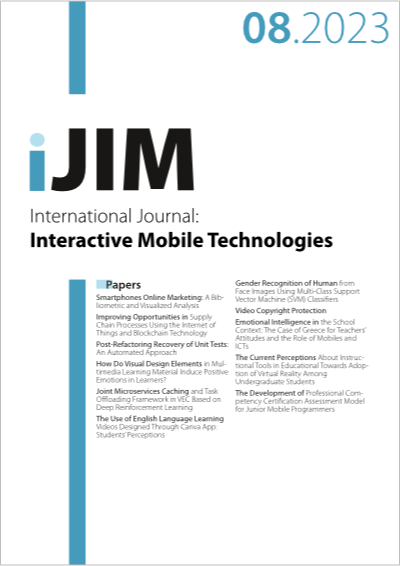Joint Microservices Caching and Task Offloading Framework in VEC Based on Deep Reinforcement Learning
DOI:
https://doi.org/10.3991/ijim.v17i08.37729Keywords:
Mobile Edge Computing (MEC), Task Offloading, Microservice CachingAbstract
Vehicle capacities and intelligence are rapidly increasing, which will likely support a wide range of novel and interesting applications. However, these resources are not effectively utilized. To take advantage of these invaluable capabilities in smart vehicles, they can be used in the cloud environment and can be operated through distributed computing platforms in order to benefit from their combined processing power, storage capacity, and memory resources. Vehicular edge computing (VEC) is a promising field that allows computing tasks to be transferred from cloud servers to vehicular edge servers for processing, allowing data and apps to be placed closer to vehicles (users).
This paper proposes a framework that combines two modules, the first one for managing microservice caching in vehicle-mounted edge networks, such that we use cluster-based caching technique to deal with the case where similar microservices are frequently requested in VEC. The second one integrates the computational capabilities of the edge servers with the capabilities of vehicles to perform task offloading in a collaborative manner.
Our solution addresses the limitations of existing edge computing platforms during peak times by combining microservices caching with computational task offloading to improve overall system performance.
Downloads
Published
How to Cite
Issue
Section
License
Copyright (c) 2023 Ahmed S. Ghorab, Hatem Hammad, Raed Rasheed

This work is licensed under a Creative Commons Attribution 4.0 International License.


